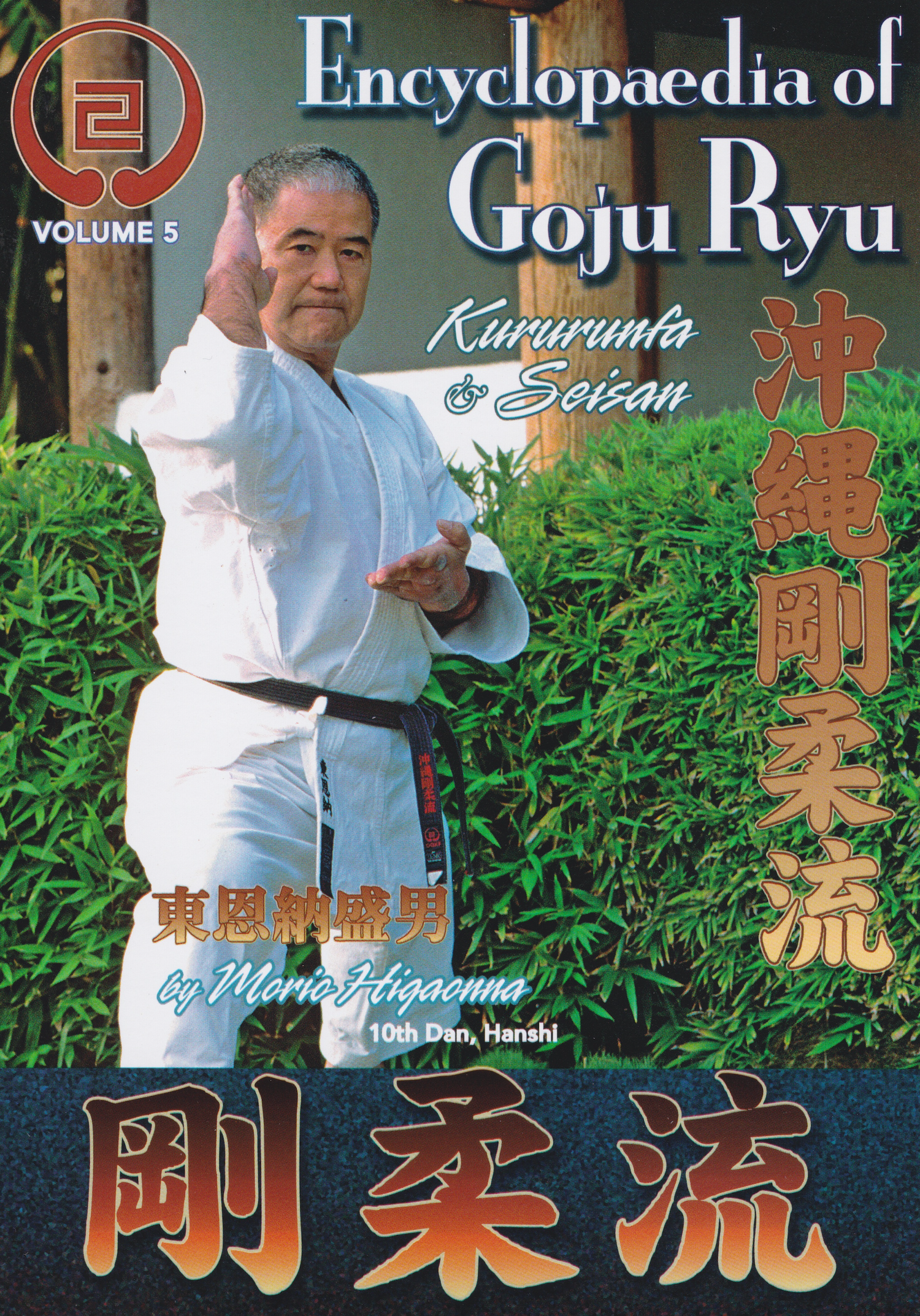Encyclopedia of Goju Ryu Part 5 DVD with Morio Higaonna
Prix habituel
$39.95 USD
Prix habituel
$49.00 USD
Prix soldé
$39.95 USD
Frais de port calculé au moment du paiement.
The author of this series of programs is the student of An’ichi Miyagi and trains with both Miyagi Sensei and Aragaki Sensei to this day. All three represent, technically and spiritually, the very essence of Chojun Miyagi’s Okinawan Goju Ryu karate.
Contents: Kururunfa & Seisan
“Today there exist approximately twenty to thirty different kata. The names of the kata differ according to their creators. Each kata contains numerous attack and defence movements in a sequence and are performed in all directions. The overall kata is an exercise for the whole body, while the individual movements are performed with the objective of self-defense.”
Chojun Miyagi 1888-1953
Founder of Goju Ryu Karate
Goju Ryu makes no secret of its Chinese origins, yet it should not be considered a purely Chinese martial art. While the patriarch of Goju Ryu, Kanryo Higaonna, trained in China as a young man and was clearly influenced by the principles and practices of Chinese boxing, Okinawan Goju Ryu is more than just another form of White Crane Fist.
Chojun Miyagi 1888-1953
Founder of Goju Ryu Karate
Goju Ryu makes no secret of its Chinese origins, yet it should not be considered a purely Chinese martial art. While the patriarch of Goju Ryu, Kanryo Higaonna, trained in China as a young man and was clearly influenced by the principles and practices of Chinese boxing, Okinawan Goju Ryu is more than just another form of White Crane Fist.
In the evolution of Goju Ryu karate, Okinawan self-defense methods were blended with Chinese combat techniques, principles, and strategies. Training methods were changed somewhat to suit Okinawan practitioners, their physiques, and life styles. What resulted after more than a half century of development was Classical Okinawan Goju Ryu karate as presented in this series of programs.
Ironically, this is without doubt closer, in a technical sense, to what Okinawan students were taught by 19th Century boxing masters in China, than modern Chinese Wu Shu. During the late Qing era and the early days of the Chinese Republic, with notable exceptions, the martial arts went into decline in China.
In the backwater of Okinawa, however, when change happened, it did so at a snail’s pace. As good Confucians, the Okinawans revered tradition and resisted change. With the rest of Asia in turmoil for more than fifty years, the tranquil, rustic, sub-tropical islands of Okinawa provided a safe repository for Chinese Boxing methods, as well as the crucible in which they were refined and developed for use by the generations that would follow.
Impossible de charger la disponibilité du service de retrait


